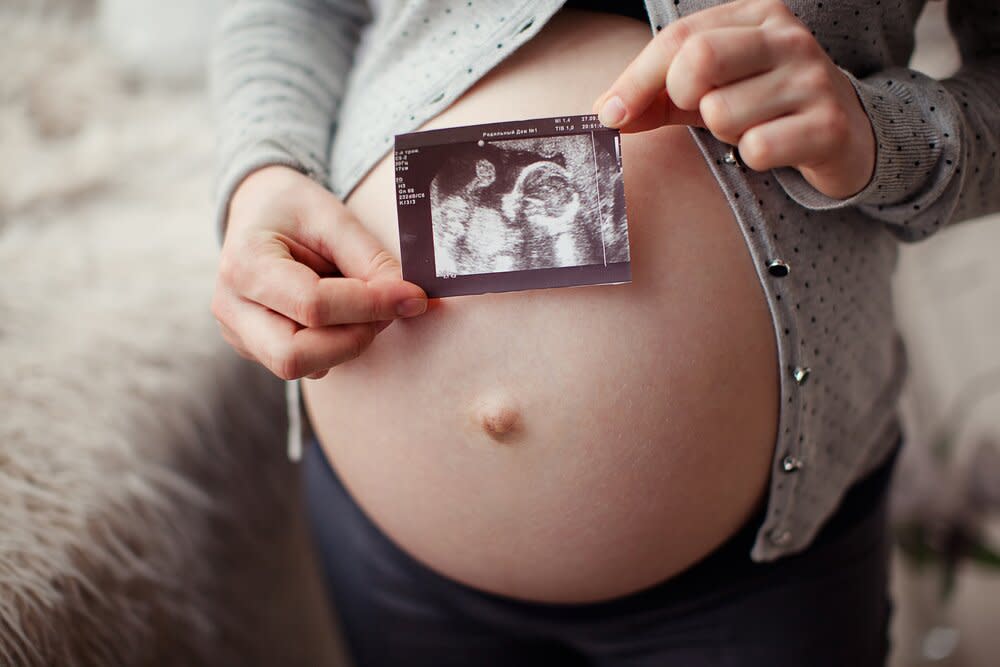Fetal Cells Can Affect Mom's Health Even Decades After Pregnancy

Shutterstock
Did you know that, during your pregnancy, it's likely that your unborn baby's cells took up residence in your body? And no, not just in your uterus, where baby was growing, but in other organs, like the liver, lungs, and even the brain. Research from Arizona State University found that the cells of a fetus often travel through the placenta and plant themselves in other areas of the mother's body. And here's the sort-of creepy part: In some cases, these cells survive within the mother's body for up to 38 years! Translation: A few "pieces" of your baby might linger in your body for almost four decades after you give birth.
Some of these cells can benefit the mother, while others can have a negative impact.
Researchers at ASU found that the migrated cells direct essential nutrients from the mother's body to the fetus. The data also suggests that fetal cells can trigger the release of oxytocin (the bonding hormone) and help repair the mother's damaged tissue.
Negatively, these fetal cells have also been associated with increased risk of developing cancer and certain autoimmune disease because they are being recognized as foreign by the mother's immune system.
The study concluded that when there are limited resources for the mother and fetus, competition is created, and this is when harmful outcomes are most likely for the mother, fetus, or both.
"If future research bears out the predictions of this framework, it could transform the way we approach, treat, and prevent a variety of diseases that affect women, especially new mothers," said assistant professor Athena Aktipis, who was involved in the study.
Caitlin St John is an Editorial Assistant for Parents.com who splits her time between New York City and her hometown on Long Island. Follow her on Twitter: @CAITYstjohn.
